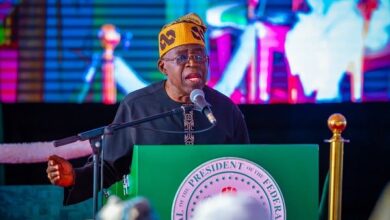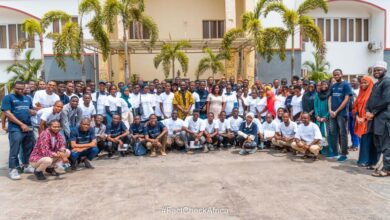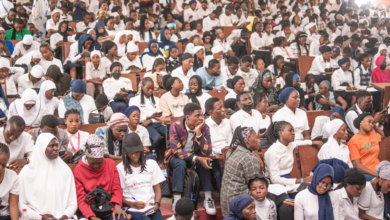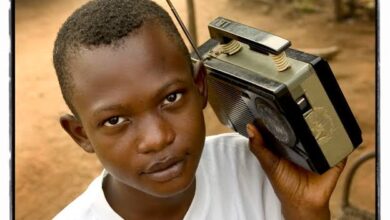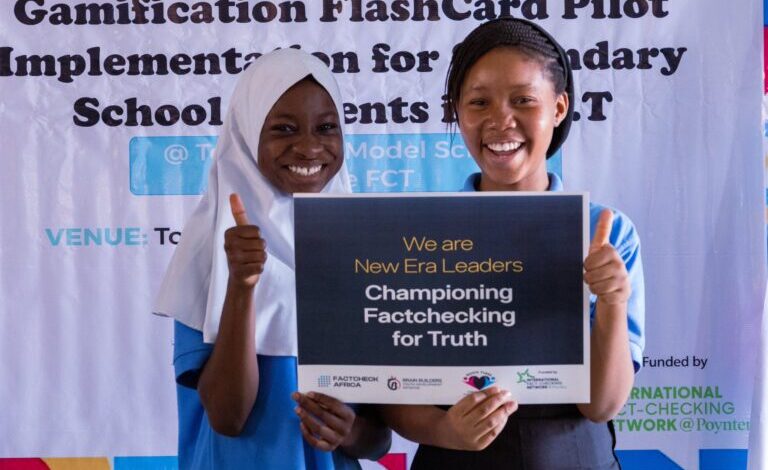
By Olasupo Abideen
In recent times, misinformation has gained ground by taking new turns and forms, impacting children who now have unfiltered access to digital tools for entertainment, learning, gathering information, and sharing views and experiences with family and friends. Due to this, children are increasingly exposed and vulnerable to online mis/disinformation and other cyber-related risks.
Various studies have established that the digital environment can be harmful to kids and teens, who haven’t fully developed the analytical skills needed to distinguish between reliable and unreliable sources. These studies also note that children may not only absorb false claims but act on them and contribute to the spread of misinformation among their peers.
A UNICEF report on Digital Misinformation/Disinformation and Children expressed deep concern about the digital environment being saturated with harmful information and its impact on children. It states:
“The popularity of the internet, social media, and visual networks such as Instagram and TikTok among children has exacerbated the risks. Even very young children or those without access to social media networks may be exposed to mis/disinformation through their interactions with peers, parents, caregivers, and educators, with mis/disinformation moving easily between online and offline contexts.
In navigating the digital world, with their cognitive capacities still in development, children are particularly vulnerable to the risks of mis/disinformation. At the same time, they are capable of playing a role in actively countering the flow of mis/disinformation and in mitigating its adverse effects.”
This dangerous trend has awakened the need for policymakers, civil society, tech companies, and parents or guardians to act. They must support children as they grow, building in them the resilience to push back against the rising tide of misinformation and disinformation, and equipping them with critical thinking and fact-checking skills.
Recognizing this need, and as part of its broader goal of not leaving anyone behind in the fight against misinformation, FactCheckAfrica launched its latest initiative tailored specifically for kids and teens—Fact-Check Champs. This is a gamified approach to education designed for secondary school students across Nigeria. The initiative aims to equip young learners with the tools needed to navigate the murky waters of the information ecosystem.
Gamification—the application of game mechanics and design elements to non-game contexts—has proven effective in increasing engagement, motivation, and learning outcomes. According to studies, gamification can lead to higher student achievement, improved retention of knowledge, and enhanced collaboration. While some findings report mixed results regarding long-term effects, the general trend shows gamification as a valuable tool for improving various aspects of learning.

Students of Yemi Ogunbiyi Anglican Schools, Sagamu paying rapt attention to the facilitator
Fact-Check Champs is rooted in expert validation by educational specialists and clinical psychologists. It ensures that young learners develop critical thinking skills and become informed citizens capable of navigating misinformation. It also provides them with a foundational understanding of misinformation, its risks, and fact-checking techniques.
The implementation of the Gamification Fact-Checking Flashcards Project began in the first quarter of the year. Partnering organizations, with support from the International Fact-Checking Network (IFCN), have expanded its reach by engaging secondary school students across different parts of the country.
So far, over 10,000 secondary school children between the ages of 12 and 19 have been reached in various private and public schools across Nigeria, including the FCT Abuja, Lagos, Ogun, Oyo, Borno, Sokoto, Imo, and Jigawa.
The students were taught about misinformation trends, verification strategies, and tools such as date-checking, source validation, and cross-referencing multiple sources, using a gamified approach involving flashcards, placards, and stickers with fact-checking information.
Notably, this initiative has been greeted with overwhelming success and positive feedback. It has also sparked a high level of engagement, leading to requests from school authorities for ongoing training and educational materials. Students made pledges to become fact-checking champions, committing to curb misinformation and educate their families and friends about the importance of verifying news.

Students of Usmanu Danfodiyo University Model Secondary School engaged by National Association of Campus Journalists (NACJ) in Sokoto State
One student, identified as Ikechukwu from St Theresa’s Comprehensive Secondary School Obowo noted that he used to believe everything he saw on social media without question, but now recognized the need to fact-check before sharing. Similarly, another student, Adebayo, from Anglican Grammar School in Ogbomoso commended the approach, stating that the session was eye-opening and that the interactive methods made it easier for him and his colleagues to grasp the dangers of misinformation.
Also, Hauwa, a Junior school student from Usmanu Danfodiyo University Model Secondary School promised to share the lessons she learned on fact-checking techniques with her peers, demonstrating a commitment to promoting fact-checking practices within their school community.

Students of Muslim Secondary School, Saki, Oyo State
The school directors and staff were also impressed by the impact of the initiative and recommended that it be expanded to other secondary schools and tertiary institutions. They suggested incorporating local media collaborations and social media outreach to further enhance awareness efforts.
Over the years, FactCheckAfrica has made significant strides in promoting fact-checking education across various demographics in Nigeria, leveraging cutting-edge tools, strategic partnerships, and grassroots outreach. The introduction of Fact-Check Champs is a natural progression in the organization’s mission to include everyone in the fight against misinformation. Its success underscores the importance of engaging young minds and encouraging a culture of critical thinking, verification, and responsible media consumption from their formative years.
